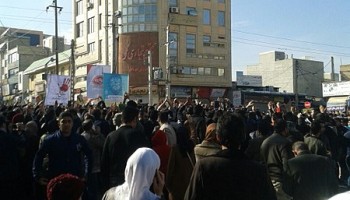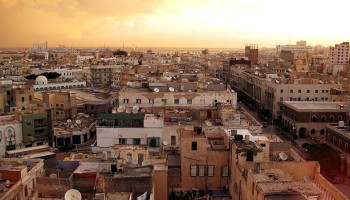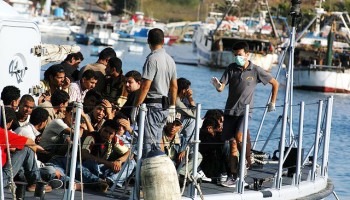Italian authorities reported on Sunday night that 28 people had been rescued and 24 bodies recovered from a 20-meter boat traveling from Libya, according to the BBC. One of the survivors reported that the boat had set off packed with as many as 700 people.
European politicians and international organizations from Human Rights Watch to Italy’s prime minister have joined calls for immediate action from the European Union (EU) to strengthen search and rescue efforts.
The president of the European Parliament, Martin Schulz, said Europe could and should do more to prevent further tragedies. “It is a shame and a confession of failure how many countries run away from responsibility and how little money we provide for rescue missions,” he said.
It is the latest in a spate of recent fatal boat accidents involving migrants fleeing war-torn regions in North Africa and the Middle East.
An estimated 30,000 people have attempted to cross the Mediterranean so far this year. The International Organization for Migration (IOM) believes there have been at least 1,500 deaths in that period, with an estimated 1,100 in the past week alone. There were 96 registered deaths in the same period in 2014.
Mediterranean search and rescue efforts were cut back in November as the Italian operation Mare Nostrum was suspended, to be replaced by the Triton program. Triton is led by the EU border agency Frontex and has a budget a third the size of Mare Nostrum. According to Human Rights Watch, Mare Nostrum would have been unsustainable without assistance from the EU.
Those in support of the cutback argued that the existence of Mare Nostrum acted as a “pull factor” encouraging migrants to attempt the dangerous crossing. In October 2014, the British Foreign Office’s minister of state Joyce Anelay categorically announced: "We do not support planned search and rescue operations in the Mediterranean.”
Aydan Ozoguz, the German government’s representative for migration, refugees and integration, rebutted Anelay’s reasoning. “It was an illusion to think that cutting off Mare Nostrum would prevent people from attempting this dangerous voyage,” she said.
Factors, Effects and Solutions
On top of factors such as worsening instability in North Africa and the Middle East, migrants have also been affected by a recent decision by the Bulgarian government to build a wall on the Turkish-Bulgarian border. The wall makes the land route more difficult to take, and could lead to more migrants instead attempting the dangerous Mediterranean crossings that resulted in the large-scale tragedies of this week.
An article in Newsweek criticized Bulgaria’s decision to build what it called an “iron curtain”, while a Bulgarian local news source, Novinite, defended the policy, citing strains placed by asylum seekers and refugees on resources in a country considered to be the poorest in the EU.
To avert further loss of life, United Nations High Commissioner for Refugees (UNHCR), Antonio Guterres, said the restoration of a robust sea rescue operation was an urgent priority. He also urged European to “establish credible legal avenues to reach Europe”.
UNHCR’s Bulgaria spokesman Boris Cheshirkov said the increasing refugee flow from outside Europe had contributed to the rise of the right-wing and anti-migrant sentiment in European states.
Anti-Migrant Sentiment
Two days before the tragedy in the Mediterranean, British journalist Katie Hopkins wrote an article for The Sun, the UK’s best-selling tabloid, calling migrants “cockroaches” and suggesting that authorities use gunships to turn back incoming migrants. She evoked outrage from other UK media outlets and rights organizations using the phrase: “Show me bodies floating in water […] I still don’t care.”
Guardian columnist Zoe Williams pointed out that Hopkin’s characterization of migrants as vermin was reminiscent of phrases used by Rwandan media propaganda in 1994, shortly before the country descended into a genocidal war: “You have to kill the Tutsis, they’re cockroaches.”






